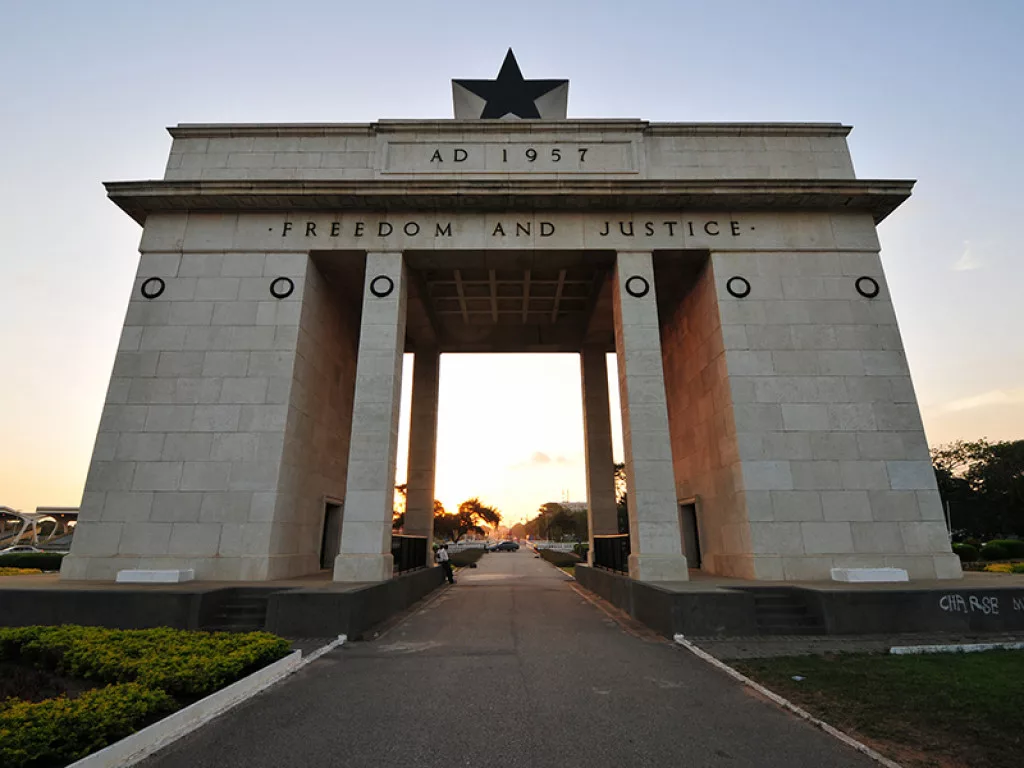We speak to the Association of Ghana Industries (AGI) about Ghana’s government, the commitment to industrialisation, and endeavouring to provide a fertile business environment for local and international companies.
INTRODUCTION
Ghana’s industrial sector has recently emerged as a significant driver for economic growth in the country. When President Nana Akufo-Addo was sworn into office in 2017, he made industrialisation a major priority, reflected in such programmes as the Ghana Beyond Aid. It aims to improve the competitiveness of trade and investment internationally, while mobilising local resources via industrialisation and value adding.
The Ghanaian economy is poised to grow significantly over the next few years (COVID-19 notwithstanding), thanks to governmental policies that help enable manufacturing and exports. As a result, Ghana has a large and very active consumer and industrial products and services sector, which is dominated by subsidiaries of international companies such as Unilever and Toyota.
However, Ghana also has a thriving SME culture – 90 percent of registered businesses in Ghana are SMEs, and they account for around 85 percent of employment in Ghana’s manufacturing sector.
SECTOR CHALLENGES
However, SMEs in Ghana do face some challenges. Many of them struggle with accessing credit or capital, with financial institutions declining loan requests due to SME’s positioning. Other SMEs struggle with finding a platform to sell their services – leveraging ecommerce is vital for them, especially in the wake of COVID-19.
Businesses both small and large also find that a significant impediment to business is the high cost and unreliability of electricity in Ghana; frequent outages lead to a loss of productivity and increase cost of maintaining machinery. Some businesses can mitigate this through setting up their own microgrids (often using PV systems).


WHY DO BUSINESS IN GHANA?
Overall, however, Ghana is considered an attractive place to do business. In 2019, the World Bank ranked it at the 114th best for ease of doing business, making it the highest-ranking West African nation on the list.
One reason for this is that the multi-party government is stable and committed to improving business confidence by helping provide a sound macroeconomic climate and streamlining regulations. FDI is being encouraged through 100 percent foreign ownership being permitted.
The country also offers export-free zones, a rapidly expanding stock market and increasing infrastructure development.
Q&A WITH ASSOCIATION OF GHANA INDUSTRIES (AGI)
Associations play a vital role in representing the interests of their members at an industry and national level. Africa Outlook spoke to Seth Twum-Akwaboah, CEO of AGI, to find out more about this vital organisation.
On Saturday June 28, 1958, a historic meeting of representatives and indigenous owners of small industries in Ghana convened to discuss the difficulties that confronted SMEs in the country. This meeting led to the inception of the Ghana Manufacturers Association.
In 1984 it was decided to expand the Association’s remit to meet the needs of both the manufacturing sector and other sectors, including finance and hospitality. The association became known as Association of Ghana Industries (AGI). In its current incarnation it consists of around 2,000 members made up of SMEs and large-scale industries in fields ranging from construction to IT, advertising to construction. We spoke to Seth Twum-Akwaboah, CEO of AGI, for his take on the association and Ghana’s industry as a whole.
Since inception, how has the AGI developed and progressed in terms of its key objectives and the messages it tries to get across?
Seth Twum-Akwaboah (ST-A): As the leading voice of manufacturing industries in the country, AGI has committed its effort to: advocating policies that advance the growth and development of industries; facilitating international trade through exhibitions of member products in countries across the sub-region; strengthening institutional collaboration through the sharing of knowledge, experience, and critical information and creating the platform for networking of contacts, both locally and internationally.
Over time, AGI has succeeded in influencing government policies and regulations. These include: the reduction in corporate tax from 32.5 percent to 25 percent; the reduction of utility tariffs from 150 percent to 89 percent; and The Public Procurement Act 2003 (Act 663) to assist the local business community to supply to the public sector.
What do you find most exciting about conducting private business in Ghana?
ST-A: The private sector is the fulcrum upon which all economic activities revolve. It provides innovation and employment, it contributes significantly to the tax basket and revenue generation, and it reduces poverty.
Ghana has become an important destination for foreign direct investment within the West Africa subregion and Africa as a whole, in view of its conducive environment for businesses.
There are various incentives such as free zone operations – which provide tax holidays for several years – a generally well educated labour force, good access to the entire West African market, growing demand due to an expanding middle class resulting from consistent GDP growth, and a stable political environment which guarantees private sector investment.
As a private sector organisation, we constantly advocate for policy makers to provide a conducive environment for industries to thrive in, and we have largely succeeded in this as AGI is highly recognised by successive governments. This partnership with government enables us to push our advocacy agenda to support private sector businesses.
On the flip side, what are its biggest challenges?
ST-A: The key challenges faced by businesses in Ghana as revealed by our AGI Business Barometer survey include poor access to medium to long term funding, high cost of capital, high cost of electricity for industrial operators and stiff competition from imported products. The recent banking reforms embarked upon by the central bank are, however, yielding good results as bank lending rates have been on a gradual decline.
How has COVID-19 affected Ghana’s industries, and how is AGI helping?
ST-A: The COVID-19 impact cut across all sectors of the industry in Ghana, but the sectors most affected are hospitality and tourism, educational institutions, food and beverage industry, clothing and garments, building and construction, airlines and services.
AGI has constantly engaged the government since the onset of COVID-19 and advocated for support for businesses. The government has subsequently listened to the industry’s concerns and has recently set up the COVID 19 Alleviation Programme (CAP) for SMEs, a two-billion-cedi (or $340 million) guarantee scheme for industries including manufacturing, agriculture and construction, alongside the Mastercard COVID-Relief Fund to support industries. AGI is collaborating with relevant government entities to implement these programmes and support businesses in Ghana. In addition, AGI is collaborating with other development partners to provide training, mentorship and project support to our SME members throughout the country.


Have you got any projects or partnerships in the pipeline you wish to highlight?
ST-A: We have several important projects in the pipeline, including the Ghana Industrial Summit and Exhibition 2021 (GISE). It is the biggest industrial gathering in Ghana and will provide a platform for serious business linkages, international networking, exposure and knowledge transfer in addition to creating awareness of products and concepts.
The event will bring together key sectors such as oil and gas, manufacturing, construction, energy and power and other supporting sectors including finance together on one big platform. It will help to set the agenda for value-added industrialisation and the advancement of local content development to support the process.
Next year we will also produce the AGI Ghana Industry Handbook 2021, a one-stop industry informational resource and guide for policy makers, industry players, researchers, entrepreneurs, and manufacturers.
We are also forming several interesting partnerships. For example, we are partnering with GIZ to implement an energy service centre promoting renewable energy usage among the large industrial companies. A second partnership – with GIZ, Sight and Light, and the Bill and Melinda Gates Foundation – will lead to the implementation of a food fortification programme for the food and beverage and sector of Ghana.
How do you see Ghana’s industry developing over the next five years?
ST-A: With the advent of robust industrial policies – such as One District One Factory, Strategic Anchor Industrial Initiatives, Development of Industrial Parks – introduced by the government, we foresee a revolutionary upsurge of the private sector and industry driving growth. Today, Ghana is assembling vehicles and introducing several sophisticated industrial operations; it will undoubtedly move industrial development to higher levels over the next five years.
Are you optimistic about the future of industry in Ghana?
ST-A: We believe the private sector is the engine of growth, and that every economy derives its source of strength from industry. With our continuous advocacy and positive policies in place, we are very optimistic about the future of industry in Ghana, despite the challenges it faces. More so with the coming into being of the African Continental Free Trade Agreement Area (AfCFTA); big market opportunities will be created within the African market which will in turn attract large industries to Ghana to target the African market.






















